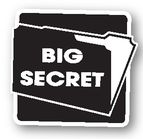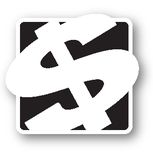CHAPTER 21
Cut Credit Card Debt
If your debts are high and your credit score is low, chances are credit cards are the culprit. The Federal Reserve says the average amount of credit card debt among families that carry a balance was $7,300 in 2007, the latest year for which numbers are available. The average credit card interest rate is 15 percent. Put those two together and it’s clear credit cards are pricey products. If you charged nothing more (which is unlikely!), you would owe about $1,000 in interest over the course of a year.
Since our goal in this book is to attack your biggest expenses, we’re going to go after credit card debt. Just as it’s possible to buy a home or a car for less, it’s possible to pay off a credit card for less. There are better-smarter- faster ways to pay off credit card debt that can help you SAVE BIG.
In this chapter, learn to SAVE BIG by:
• Freezing your credit cards—literally and figuratively.
• Using your savings account to pay your credit card debt.
• Choosing the right order to pay off your debts.
• Paying your credit card bills not more, but more often, to retire them faster.
The Minimum Payment Mess
If you want to SAVE BIG, credit card debt is the enemy. Pure evil, especially if you are making only the minimum payment. Vanessa J. of New York is pregnant. Suppose she were to spend $3,000 on furniture to make her new house perfect for the new arrival. Now, say she were to charge the fabulous furniture on her credit card with a 30 percent interest rate, a rate that is not uncommon these days. Then, what if Vanessa and her husband ended up making just the minimum payments on that credit card? Brace yourself. Here’s how much the credit would cost them:
 The Minimum Payment Mess
The Minimum Payment Mess| Original price of furniture | $ 3,000 |
| Interest over 27 years | E11,814 |
| TRUE COST of furniture = | $ 14,814 |
In this scenario, Vanessa and her husband end up paying five times more for their furniture than they originally intended. And—get this—by making only the minimum payment, it would take them 27 years to retire the debt—if they never charged another thing on their card, which is unlikely. That is the terrible trap of making only the minimum payment.
I know you’ve heard about the minimum payment mess before, but what’s a personal finance book without a rant about credit card debt? It had to be done. Besides, I’ve got the chops since I’ve been there. I dug myself out of debt one dollar at a time. If you have credit card debt, no other advice in this book matters until you pay it off. Okay. I hereby proclaim the lecture over. Read on for creative, constructive ways to become debt free and SAVE BIG.
To Stop Collectors from Calling, Just Write Them a Letter
This is my favorite consumer tip of all time. All you have to do is ask the collector for their company name and address. Then write them a letter—send it certified—telling them you do not wish to be contacted anymore. Under the Fair Debt Collection Practices Act, they must obey. The debt doesn’ t go away, but the upsetting phone calls do. After that, the collector can only contact you to inform you of a specific legal action it is taking against you.
Old Fashioned Discipline
If you carry credit card debt, I want you to put down this book for a sec, go to your wallet, get out all your credit cards, grab a pair of scissors, and cut up your cards. All but one.
Are you feeling the withdrawal symptoms yet?
Have you broken out in a cold sweat?
Well, I have news for you—you’re about to get even colder.
I want you to take the remaining card, stick it in a one-gallon plastic zipper bag, fill the bag with water, and freeze it. Yes, freeze your credit card in a block of ice. You are putting your excessive spending on ice. You can chip the card out of there if you have a true emergency, but the effort it takes should prevent impulse buys.
Speaking of freezing, now I want you to go on a spending freeze. You are only allowed to spend money on the essentials that keep you alive. In my debtor days, my weaknesses were clothes, decorating, and dining out. I eliminated those categories and only spent money on housing, gas, and food. It sounds like a drag, but actually a spending freeze knocks tons of things off your to-do list and helps you focus on the things that matter, like friends and family.
The real key to reducing credit card debt is sending more instead of spending more. If you follow the preceding advice, you’ll stop spending more. Next you need to figure out a way to start sending more—making bigger payments to your credit card company. I did this by sending money when I had it, even if I didn’t have a bill due. Cash in my hand had a way of turning into shoes on my feet, so I had to get rid of that cash fast.
I’m dating myself, but what I did was preaddress and stamp several envelopes so I had them ready. Anytime I had extra money in my checking account, I popped it in an envelope and kissed it goodbye. You can do the same thing if you bank online. In fact, it will be out of your sticky little fingers even faster when you click that mouse.
Beware Debt Settlement Companies
Their persuasive pitch is that they can help you retire your debts for pennies on the dollar. But often they charge a huge fee up front that could be going toward your debts. Many debt settlement companies tell people not to pay their bills while they build up a lump sum to offer to their creditors as a settlement. Stopping payment on your bills is devastating to your credit score. Plus you could be hounded by collection agents or even sued. Many people drop out of these programs before the company settles a single debt for them and they never get their money back. Meanwhile, penalties and fees have accrued and they owe more than ever.
Credit Counseling
If you are too overwhelmed to reduce your debts on your own, don’t delay. Get credit counseling. Scratch that. Get legitimate credit counseling. Seek out a nonprofit company that provides counseling for free or charges no more than $25 to $75 a month for its services. For-profit credit counselors have been known to charge hundreds or thousands up front and do nothing to help you. Others have promised to forward people’s payments to their creditors, then run off with the money instead.
You can find a legitimate credit counselor through the National Foundation for Credit Counseling,
www.NFCC.org, or the Association of Independent Consumer Credit Counseling Agencies,
www.AICCCA.org.
The granddaddy of them all is Consumer Credit Counseling Service (CCCS). A CCCS counselor can negotiate with your credit card companies to lower your interest rate and maybe your monthly payments, so you can get your credit cards under control. In one type of program, you send a lump sum to CCCS, which divides it up and forwards it to your creditors. Meanwhile, CCCS gives you an earful of education about how not to get into debt again.
Credit Counseling Does Not Hurt Your Credit Score
The FICO scoring model does not consider credit counseling one way or another. It is a neutral entry on your credit report. It is possible, however, that you will have a hard time getting a mortgage loan while you are in credit counseling. That’s because human bankers review your actual credit report, in addition to your credit score, when you apply for a big loan like a mortgage. If you’re in credit counseling, you’re not quite ready for a house yet anyway. Usually entries about credit counseling are dropped from your report as soon as you pay off the debts you needed counseling about.
Newfangled Strategies
Back when I was teetering under credit card debt, I wish I had known that there are some nifty tricks for knocking your debts down. I have since learned all sorts of newfangled strategies that will help you reduce your debt level, improve your credit score, and SAVE BIG on your future purchases. Here they are.
Negotiate Your Rate
You can often negotiate for a lower interest rate, which will help you pay off your debt more quickly and cheaply. All you do is call up your credit card company and politely ask them to lower your interest rate. Naturally, you will also mention that other card companies have offered you a lower rate, so if this company doesn’t help you, you will take your business elsewhere.
We tried this with a bunch of young
Good Morning America employees and it was a grand success. We showed off their results live on the show. Here’s what a few five- minute phone calls accomplished:
 Benefit of Asking for a Lower Credit Card Rate
Benefit of Asking for a Lower Credit Card Rate| Cardholder | Before | After |
|---|
| Cardholder 1 | 14.99% | 8.99% |
| Cardholder 2 | 17.49% | 10% |
| Cardholder 3 | 23.65% | 16.25% |
Those simple phone calls can make a big difference in how much and how long it takes to pay off your credit cards. Let’s say you have $15,000 in credit card debt (I see it all the time) and you want to pay it off in two years. How much would negotiating for a lower rate help you? Let’s use the numbers from cardholder 2 since it’s a real interest rate reduction I’ve seen with my own eyes. Here’s the math:
 Negotiating a Lower Rate on a $15,000 Balance
Negotiating a Lower Rate on a $15,000 Balance| Interest Rate | Amount Due |
|---|
| 17.49% | $ 2,885 |
| 10% | 1,613 |
| BIG SAVINGS = | $ 1,272 |
Wow! By simply negotiating a lower interest rate, you would be able to save $1,272 over two years.
In the post-crisis economy, you may not be able to achieve as big an interest rate cut, but the fact remains that it is easier for a bank to keep a current customer than to get a new one, so the bank will probably work with you.
Get a Different Card
If your current card company is unsympathetic, several websites list low-interest credit cards you can apply for instead. Just be sure to apply for them one at a time with some space between applications to keep hits to your credit score to a minimum. Check
www.CreditCards.com,
www.Cardtrak.com, and
www.LowCards.com.
Use Savings to Pay Debt
I know lots of smart people who have a good-size savings account and credit card debt. That is just dumb. Oh, did I say that out loud? I know, I know, people feel it’s important to save for emergencies. Trust me, credit card debt is an emergency. It is sapping your financial strength. You can instantly make a profit by using low-interest savings to pay off high-interest credit card debt.
If your savings account yields 2 percent interest and your credit card charges 17 percent interest, you make a 15 percent profit by using the savings to pay off the debt. Money managers would kill to make that kind of gain in the stock market! Here’s how the numbers would play out with a balance of $10,000:
 Using Savings to Pay $10,000 Debt
Using Savings to Pay $10,000 Debt| Rate | Interest |
| Credit card debt @ 17% | $ 1,700 charged |
| Savings account @ 2% | $ 200 earned |
| BIG SAVINGS = | $ 1,500 |
If these numbers didn’t convince you and you are clinging to the idea that you need a large savings account in case of an emergency, then think of it this way: Take the sure savings and gamble on the possible costs. You are guaranteed to save money by using your savings to pay your debt. You may or may not have a future emergency. If you do, you can use your credit card to pay for it. Still squeamish? Let’s compromise. Keep $1,000 in your savings account. Send the rest to your credit card company and start to SAVE BIG.
To be clear, I am not talking about tapping into a 401 (k) or IRA here. If you already have money in one of these retirement accounts, don’t withdraw it because the penalties could well be worse than the credit card interest. If you are contributing to one of those while you have credit card debt, stop and pay the debt first. The one exception is if your employer makes a match, in which case you should contribute just the amount that is matched to get the free money.
You Can Get a Higher Interest Rate on Your Bank Account
The website
www.Money-Rates.com lists the highest savings account interest rates at any given time. There are even checking accounts that offer interest rates as high as 6 percent. For that, check the website
www.CheckingFinder.com.
Pay in the Right Order
Another strategy that helps you retire debt faster is to pay your credit cards in the most beneficial order. People always ask me, should I go after the highest interest rate first or the highest balance first? There are different answers for different circumstances, but this is a book about saving money, and the way to SAVE BIG is to move from highest to lowest interest rate. Why? Because the debt with the highest interest rate is costing you the most money. The less time you are carrying a balance on that card, the less time you will be paying that onerous interest rate. When that balance is wiped out, move on to the next highest.
Many experts argue that people should pay off the cards with the smallest balances first, for the psychological boost of finishing off an entire debt. That’s insulting. Since this book is specifically about saving money, I’m going to stick to my guns. Fire on the highest - interest debts first.
You May Be Able to Negotiate up to 60 Percent off Your Debts
When the recession hit, credit card companies became much more open to the possibility of allowing people to settle their debts for less than they actually owe. In other words, if you owe $10,000, you will only pay $4,000 and the creditor will write the rest off as a loss. But only do this if your credit score is already a wreck and you don’ t plan to apply for a big loan any time soon.
Pay More Often
Instead of paying your credit card bill once a month, when it’s due, try making a half payment every two weeks. Many of us are paid biweekly, so this evens out your cash flow. More importantly, it results in making more payments per year, since there are more than four weeks in most months. I mentioned this strategy for paying mortgages off early. Well, it works for credit cards too. The reason is basic: There are two months of the year that you end up making three payments instead of two.
I’m going to use a real whopper of a debt for this example, to show what a difference this strategy can make. Let’s say you owe $20,000 at 24.99 percent interest. A typical minimum payment would be $800 a month. So instead you send $400 every two weeks. Here’s how this will help you SAVE BIG:
 Benefit of Paying Biweekly Instead of Monthly
Benefit of Paying Biweekly Instead of Monthly| Schedule | Interest Owed |
|---|
| Monthly | $8,539 |
| Biweekly | $7,539 |
| BIG SAVINGS = | $ 1,000 |
It’s amazing! Not only do you save $1,000 in interest, you cut four months off of your 3-year repayment schedule by paying biweekly! The upshot of paying biweekly is that you end up sending in just $67 a month extra. Of course, I don’t encourage anybody to make just the minimum payment. This strategy works even better if you pay more. The best plan of all is to keep making the same size payment even as the minimum payment required goes down.
There’s another factor at work here that I haven’t even included in the math. You are short-circuiting some of the credit card company’s interest charges by making one of your payments earlier in the billing cycle. That’s because when you carry a balance, you are charged interest every day of the cycle. By paying some principal early in the cycle, you are reducing the average daily balance that interest is based on.
Make Money by Spending Money
When your credit card debt is dead, it’s time to make a card work for you instead of you working for it. The website
www.BillShrink.com can help you identify the ideal card for your lifestyle, the key to earning maximum points. Keep in mind that credit card companies are often more generous with travel points than shopping points. If you want a cash-back card, don’ t settle for one that pays less than 1 percent. More possibilities: Swap points with other individuals at
www.Points.com. Donate miles converted from credit card points to injured service members and their families at
www.HeroMiles.org. Donate points to charity at
www.ThankYou.com .
Using the 14-day payment method is easy with online, automated banking. Just make sure your bank won’t fine you for not paying the entire minimum balance on the due date, since that’s what banks are used to. Some people send small amounts even more often. If you do that, check to see if your bank limits the number of payments you can make per month. The website
www.CreditCards.com keeps track of these rules in its section on “Micropayments.” I will link you to the specific page you need from my website,
www.ElisabethLeamy.com.
BIG TIPS
• Cut up and freeze your credit cards so you begin to send more money than you spend.
• Negotiate with your credit card company for a lower interest rate.
• Use savings to pay your credit card debt, if you have it.
• Pay the card with the highest interest rate first.
• Pay biweekly instead of monthly.
 The Minimum Payment Mess
The Minimum Payment Mess The Minimum Payment Mess
The Minimum Payment Mess


 Benefit of Asking for a Lower Credit Card Rate
Benefit of Asking for a Lower Credit Card Rate Negotiating a Lower Rate on a $15,000 Balance
Negotiating a Lower Rate on a $15,000 Balance
 Using Savings to Pay $10,000 Debt
Using Savings to Pay $10,000 Debt

 Benefit of Paying Biweekly Instead of Monthly
Benefit of Paying Biweekly Instead of Monthly
